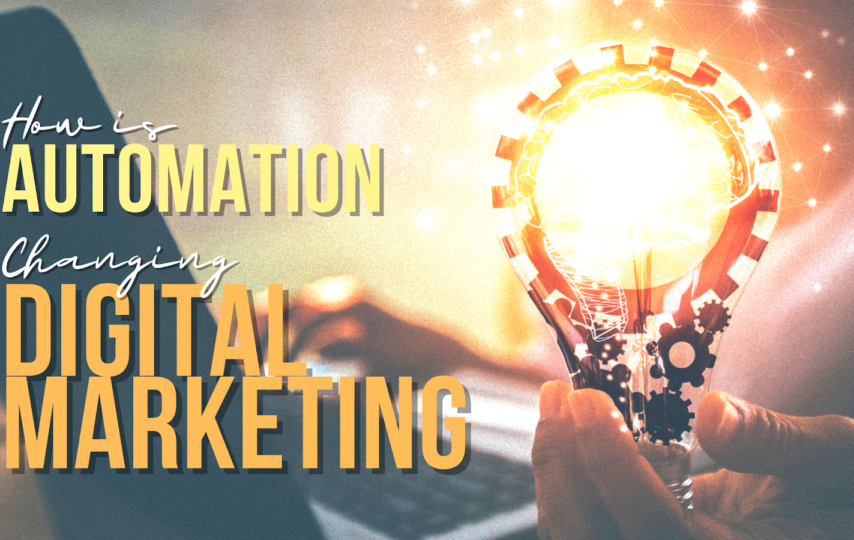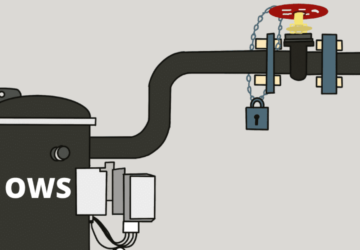Automated technology is now becoming the norm in this digital age, especially after a global pandemic that hastened advancements in Ai-powered solutions.
In today’s evolving digital landscape, artificial intelligence is changing lead generation and customer relationship management.
Artificial intelligence (AI) technology is integrated into digital marketing processes beyond customer conversion. Businesses are able to work smarter and leverage automation engaging with their target market, collecting and processing data for personalization, streamlining content creation, workflow, and many others. Businesses also employ Artificial Intelligence to optimize UX (User Experience) significantly.
What is Artificial Intelligence?
Artificial Intelligence is designed to integrate software to recognize set rules, pattern recognition, algorithms, and machine learning models. It allows data-based problem solving that streamlines operations for businesses.
AI enables machines to learn from experience, respond to new inputs, and perform human-like operations. It can simulate human intelligence and allow computers or apps to function at varying levels of autonomy. Automation helps reduce human processes, especially in the case of repetitive functions.
A survey from HubSpot Global AI says that 63% of people are unaware they are already using AI technologies, like Alexa, Siri, Google Maps, social media, and more.
AI-powered tools for digital marketing also makes content creation, team management, and marketing tasks much easier. Recurring promotional activities that take up time so teams can concentrate on strategy and execution.
How Automation Works
Automation is an “automatically controlled operation of an apparatus, process or system by mechanical or electronic devices” to substitute human workforce. It is a demonstration of human inventiveness in our attempts to develop perfect algorithms for machine learning.
Many industries have begun to use automation to complete different tasks, and recent applications for automation can be seen in mining, retail, waste management, business processes, and of course, advertising.
Here are some effects of automation we are seeing so far:
- Automation has been replacing some jobs, but has created opportunities for new job titles and fields of specialization as well.
- Big data access is now a necessity because of automation, that has divided digital marketing into segments like social media marketing, growth marketing, content marketing, email marketing, and performance marketing.
- Streamlining data-driven jobs so marketing professionals can focus on high-quality tasks.
- Less cost for greater revenue: Automation improves your conversion rates through more targeted PPC campaigns, and data-driven content marketing strategies.
- Minimize mistakes, especially human errors. For instance, ads had to rely on people to interpret complex data used in advertising decisions. The task is no more precise with automated systems for ad campaigns and the like.
How Automation is Redefining Customer Experience?
AI is now changing customer experience in a variety of ways. Messenger apps like WhatsApp are now used for customer service more than ever before.
Chatbots can be used to answer simple customer questions in real-time, anywhere they are worldwide. The technology also improves customer experience significantly by improving customer response without having to double up on your human workforce.
Even eCommerce stores with chatbots or brick-and-mortar shops with in-store robots are experiencing customer service revival. Walmart has robots that choose items and connect them to shopping carts. This technology is also widely-used in their large warehouses in various locations.
Automated Ads
Social media platforms like Facebook and Google Ads increasingly turn to AI for data collection, analytics and targeting. In whatever scale thousands of dollars yearly in manpower, and bringing in better revenue because of targeted ads.
But people also need to learn how to write, design, and track ads. In addition, people are still needed to help a company understand how a specific advertisement or promotion influences the bottom line. Training is needed to increase awareness on marketing automation, and companies are also going for those who are already experts in this field.
For instance, a new expertise on Audience Management as a Service (AMaaS) software is needed. AMaaS tools optimize social media audiences and select the most impactful channels for every campaign. To do this, it optimizes big data to target conversion ads for maximum engagements and revenues.
Digital marketers need to brush up on their skills, and learn new skills, software and the like so they can be early adopters and experts on these emerging technologies.
5 Reasons Why Marketing Automation is Useful
Marketing automation provides many benefits to businesses who adopt it, such as:
- Marketing automation is a time-saver
You can use drip email marketing strategies to organize your outreach and customer retention efforts. All you need to do is set a campaign up and automate it according to metrics you set. Visitors who engage will automatically be added to your subscriber list even while you sleep.
- Automations increases ROI
Aside from saving you time and helping you work more efficiently, marketing automation helps you to better engage with visitors, get more leads, and deliver good ROI. Since most companies get improved results in their overall strategies, it is encouraging more and more companies to invest in automation.
Businesses that adopt automated communications strategies yield 53% higher conversion rates compared to those who still use traditional strategies. The growth in revenue is around 34%, which makes marketing automation worth the investment.
- Cost-Efficiency
Cost-efficiency is another benefit of marketing automation because it allows companies to lessen costs but boost productivity at the same time. Sales teams are able to divert saved funds to other worthwhile investments, like increasing advertising budgets for better online impressions and ranking on SERP (Search Engine Results Page).
- Shorter Sales Cycle
Marketing in a consumer-facing world is all about educating future consumers within a much shorter period. Although some marketing automation is all about monitoring future consumer actions to settle on a communications approach, there is a significant gap in the length of promotions. The consumer strategy needs to draw the customer’s attention quickly, with the path to check-out being short, easy, obvious, and appealing.
- Better Audience Interaction
In consumer-centric marketing strategies, the focus is being able to quickly engage with customers in no time. It’s more than tracking potential customer behaviors that determines messaging strategies. it is about delivering those messages promptly and consistently.
You need to be able to create a good impression with your customers in a few seconds of your interaction, and nurture that connection with a customer management strategy to keep them engaged, and hopefully, converting.
Where Does Human Touch End and Automation Begin?
The greatest concern people have regarding automation is that technical development can make human tasks obsolete. Although these concerns are not completely unfounded, we are still far from the point where automation fully takes over humans.
Whatever type of technology is designed to augment human capacities. And although some jobs will become obsolete, new jobs for a new wave of innovation will also emerge.
Conclusion: Upskill and Prepare for Automation
The human workforce will not be overcome by automation. But we do need to keep up and hone our specializations on these tasks, as well as master the technologies available at our disposal today, so we stay in demand, especially in the fast-paced industry of digital marketing.
In fact, 40% of marketing job openings now require digital skills. Digital jobs are also multiplying yearly. The greater the specialization, the higher the demand and the more lucrative salaries get.
Moreover, companies are also demanding marketing teams to be filled with people who know how to do analytics, statistics, big data management, together with content management skills. Learning the tools of the trade is always crucial no matter the industry you belong to, especially if your industry is heavily reliant on emerging technologies.
Although automation can be pretty intimidating at first, it’s worth trying, especially if your business is constantly growing.
AUTHOR BIO
MAYLEEN MEÑEZ
Mayleen Meñez used to work in media before finding her true passion in NGO work, travelling the Philippines and Asia doing so. She homeschools 3 kids and loves reinventing Filipino dishes. She is a resident SEO writer for Softvire Australia and Softvire New Zealand.








